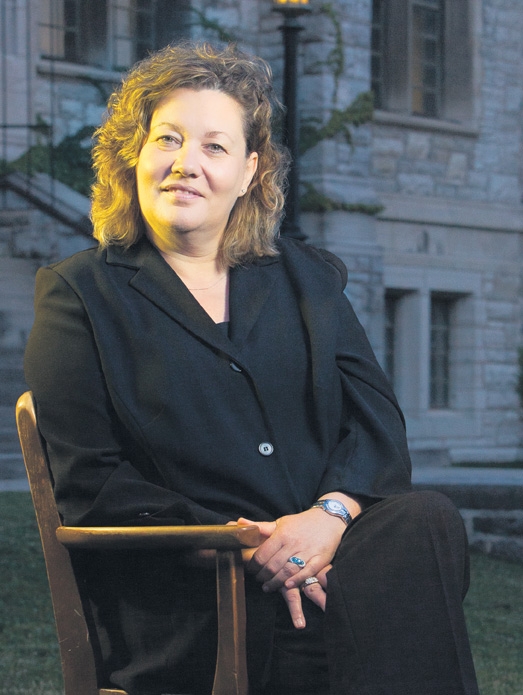Where mental health is concerned there is still an overwhelming discrimination attached that makes it uncomfortable to talk about. Changing the way we see things is never easy but mental health is making a valiant effort to do just that.
Let’s face it. When it comes to mental health, there is still some taboo sentiment that exists in society. Fear of judgement and fear of discrimination prevent those who suffer mental illness from speaking out. Rightly so because sadly, that judgement and discrimination do continue to exist. It takes time and effort to chip away at those attitudes, and Dr. Heather Stuart, a professor of Community Health and Epidemiology at Queen’s University is doing her part to achieve that.
She has launched a campaign to eliminate the stigma associated with mental health. The goal of this campaign is to open up the dialogue, so mental health can be talked about comfortably in any setting. Stuart has been trying to understand the experience of this discrimination from the perspective of people dealing with mental illness. The campaign brings people together to discuss mental health and learn from one another’s successes and mistakes.
Growing up in Guelph, Ontario Stuart worked at a health centre that specialized in mental health treatment and providing services for those with psychiatric and addiction issues. From there, her passion to help grew. She earned her Honours BA and Masters in Sociology at Western University and went on to get her PhD of Epidemiology at the University of Calgary. She conducted research at the Calgary General Hospital which further nourished her interest in working with those who have mental health issues. She worked with the World Psychiatric Association and started a program in the 1990s that focused on dealing with the prejudice attached to schizophrenia. “At the time, there was no literature on the subject,” said Stuart. “So our Canadian pilot project was working on that.”
Stuart then worked as an associate professor the University of Calgary until she moved to Kingston and joined Queen’s Epidemiology department. (Her husband became the Head of the Department of Psychology at Queen’s).
Now in addition to teaching, Stuart runs an applied research program with the Mental Health Commission of Canada and people in the community. Her particular area of focus group is with youth and how educational approaches can be used to reduce stigma and increase an acceptance and understanding of the issue.
Together, they are working to find the most effective “active ingredients” that can be used in high school programs. They want to ensure that moving forward they are using the best practice standards and to do this they are trying to find answers to some complicated questions. When children and teenagers are concerned, things can be unpredictable, as can their reactions.
“We want to know why some people are so ready to change [their views] while others stay on the fence and a few, a very small few actually get worse,” said Stuart. “We need to know why that is. What helps students learn and how can that be applied on a greater scale?”
Stuart stresses an approach that she calls “Contact Based Education” where people who deal with mental health issues now speak about their experiences through various community outreach programs and projects.“It is very effective across the board,” she said.
For Stuart, these kinds of results show the success of the work that she has been a part of. She finds the most exciting part of her job working with people and programs in this field that she feels so passionate about. It is always personally challenging and it is fulfilling to help others.
“We are always adapting our material, trying some things different to see if we’re missing a mark or what can be improved,” she said.
Mental health issues are prevalent. The Canadian Mental Health Association says that 20 per cent of Canadians will personally experience a mental health issue. She said, “we need to change the way people think about mental illness so that those affected will be treated fairly and without prejudice or stigma.”
Stuart is also the Bell Canada Mental Health and Anti-Stigma Research Chair and the Senior Consultant Opening Minds, Mental Health Commission of Canada.

